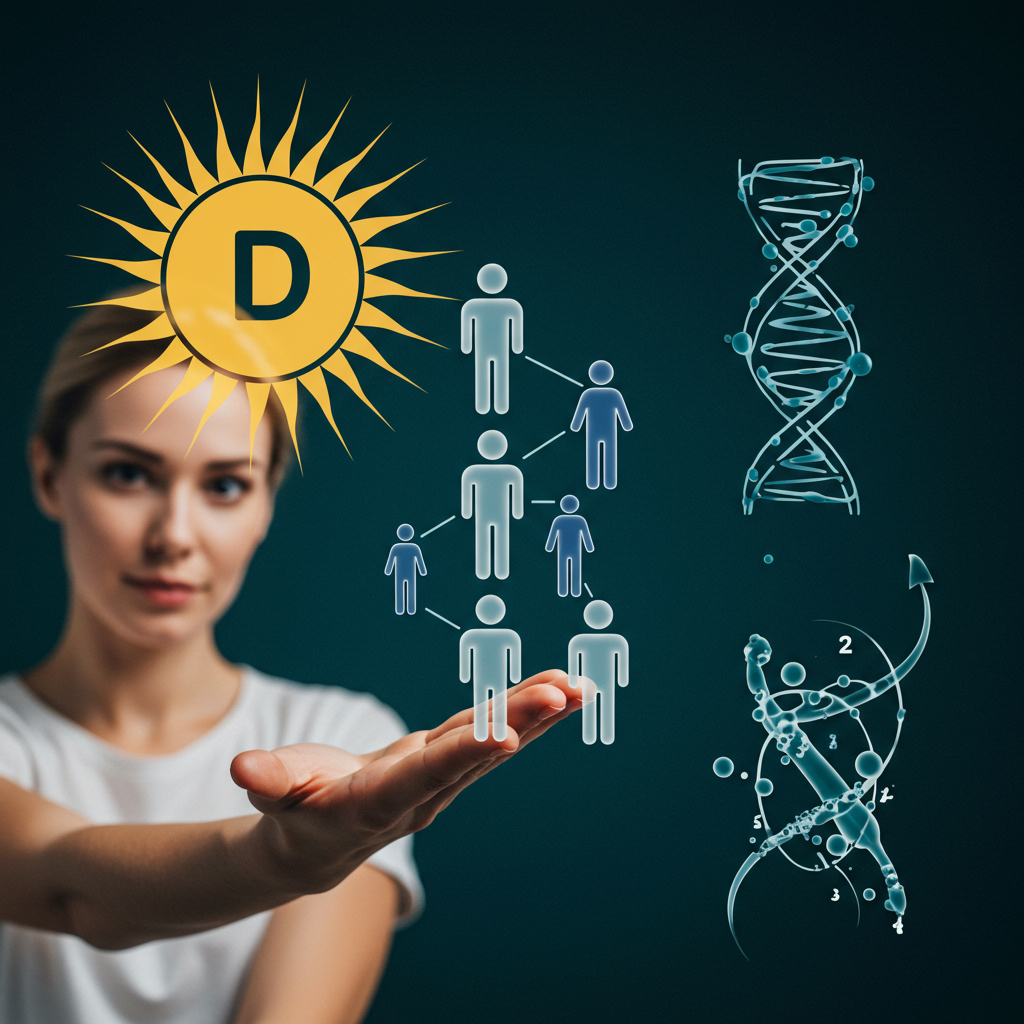Summer might feel like it’s in full swing, bringing thoughts of outdoor fun and sunshine. But it’s also a season that can highlight feelings of loneliness. Interestingly, health and well-being research points to interconnected strategies for improving both physical health and emotional connection – from understanding the nuances of Vitamin D to exploring the cutting edge of measuring aging and leveraging our environments to feel more connected.
Let’s dive into some key insights for enhancing your well-being this season and beyond.
Addressing Loneliness Through Connection
Feeling isolated can have significant health consequences, including increased risks of anxiety, depression, heart disease, and dementia. While individual therapies exist, researchers are also exploring how our environment can help foster social connection.
Studies suggest that spending time in nature and green spaces can bring people together and reduce negative feelings associated with social isolation. Rethinking environments to facilitate spontaneous interaction might be a powerful way to combat what some term “lonelygenic environments.” Leveraging the outdoors, whether through organized group activities or simply being present in shared green spaces, can be a step towards feeling more connected.
What Your Body Language Says About Your Longevity
Beyond feeling well, many of us are interested in living healthier, longer lives. While complex tests exist, a simple physical assessment might offer surprising insights into your potential healthspan.
A large-scale study involving over 4,200 adults aged 46 to 75 explored the sitting-rising test. This involves lowering yourself from a standing position to the floor and standing back up with minimal assistance (hands, knees, etc.). Your score, based on how much assistance you needed, was found to be an early indicator linking mobility, strength, and flexibility to mortality outcomes. It’s a straightforward reminder that maintaining physical function is crucial for long-term health.
Taking this a step further, scientists are now measuring biological age – how old your cells are functioning, versus your chronological age. This is often assessed through complex markers like DNA methylation patterns (using “epigenetic clocks”). Research indicates that biological age can be influenced by lifestyle and is potentially reversible.
One recent study looking at older adults (70+) found that while Omega-3 supplementation alone showed a signal for slowing certain biological aging clocks over three years, neither Vitamin D nor exercise alone had the same effect on these specific markers. However, the study highlighted the potential for additive benefits: combinations of Omega-3 with Vitamin D and/or exercise demonstrated improved outcomes on some aging markers, like the PhenoAge clock.
Another smaller study showed that a comprehensive 8-week program including specific dietary changes (rich in vegetables, seeds, eggs, and “methylation adaptogen” foods like berries and green tea), supplements (probiotic, greens powder), exercise, stress reduction, sufficient sleep, and intermittent fasting resulted in a significant reduction in biological age among participants. This study also underscored the negative impact of stress, showing it could increase biological age.
These findings suggest that while simple functional tests provide important clues, addressing biological aging at a cellular level likely involves a combination of lifestyle factors. Exercise, as noted in both the sitting-rising test implications and the biological age research, remains a universally recommended cornerstone for healthy aging.
Vitamin D: Is a Supplement Necessary?
Vitamin D is often hailed for its potential benefits, leading many to wonder if they need a supplement. According to experts, including Dr. JoAnn E. Manson, preventive medicine chief at Brigham and Women’s Hospital, the answer for most healthy adults is likely no.
We need only modest amounts of Vitamin D, and getting more isn’t necessarily better. While it’s been explored as a potential “miracle supplement” for various conditions, the evidence doesn’t support it as a universal panacea.
However, specific groups do benefit from supplementation:
Adults aged 75 and older
Individuals being treated for osteoporosis
People with certain conditions like Crohn’s disease
Breastfed infants
Adding nuance from recent research, while Vitamin D supplementation alone might not significantly impact biological age clocks, it appears to play a role in combined strategies. As noted in the DO-HEALTH trial, combining Vitamin D with Omega-3 and exercise showed additive benefits on some biological aging markers, suggesting its value might be enhanced when part of a broader health approach.
Find Your Joy!
Beyond the science of health and aging, incorporating moments of joy is vital for overall well-being. Here are a few ideas that brought joy this week:
Whipping up vibrant red drink recipes to celebrate Juneteenth.
Campers communing with ancestors at a Juneteenth sleepover.
Discovering travel destinations known for their joyous vibes.
Making the most of fleeting fresh sour cherries.
Cheering on Bucky, the competitive wiener dog derby winner (his training? playing fetch!).
Lining up to snuggle capybaras at a unique capybara cafe.
- Exploring great tech products for summer fun.
- www.nature.com
- www.medicalnewstoday.com
- fortune.com
Understanding the science of health, like biological aging and targeted nutrition, combined with fostering connection and embracing everyday joys, forms a powerful foundation for enhanced well-being.


